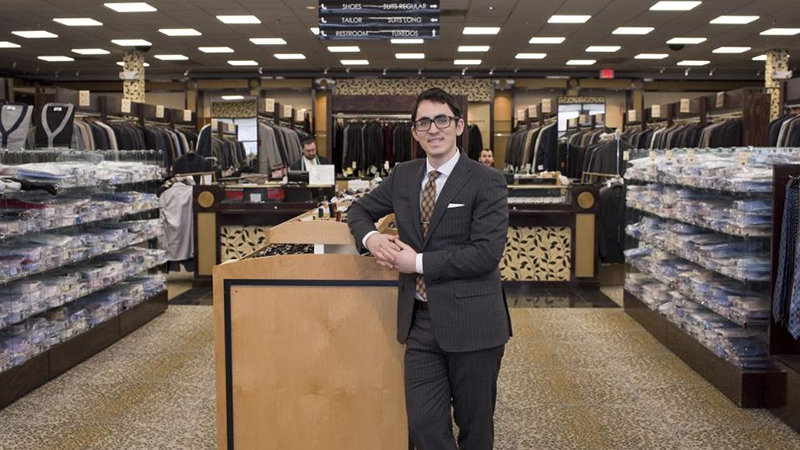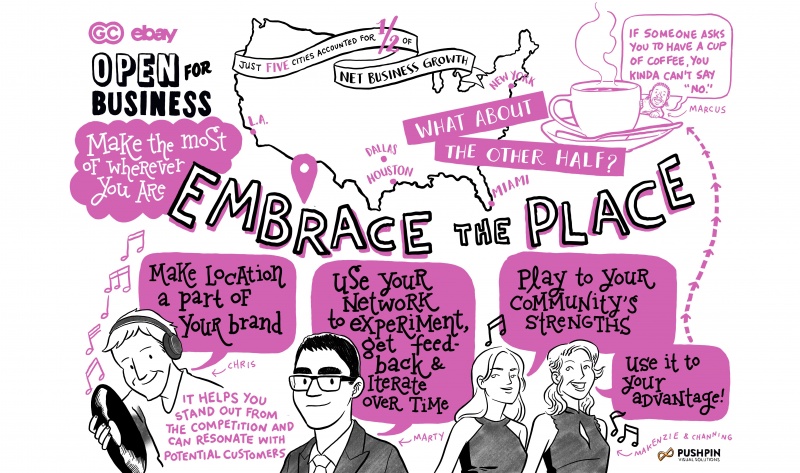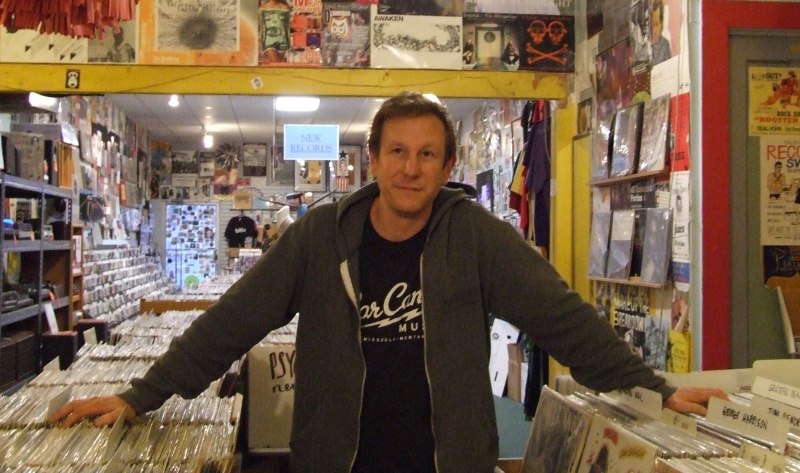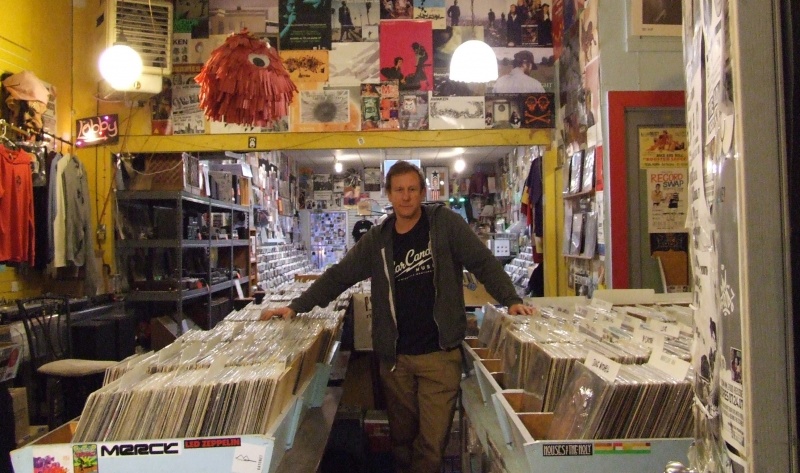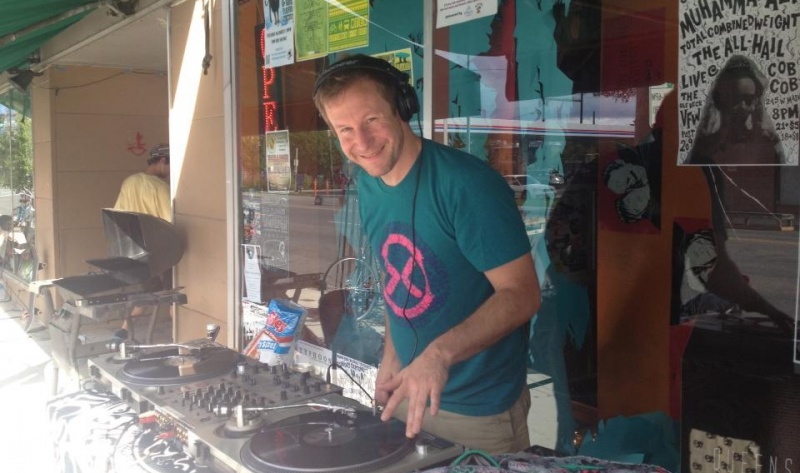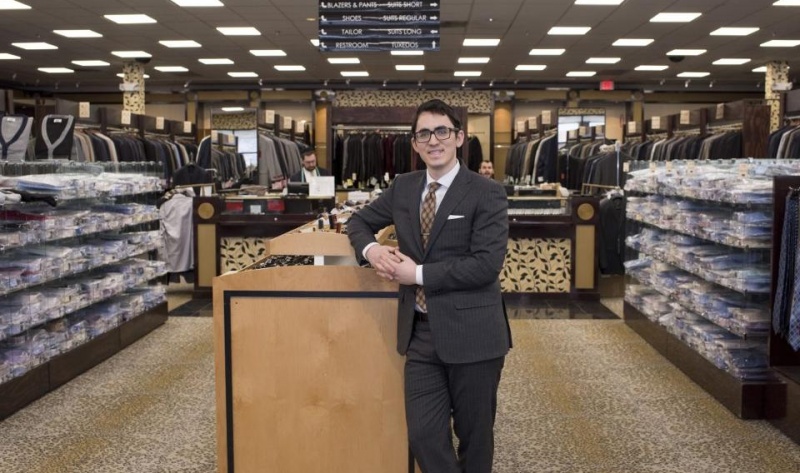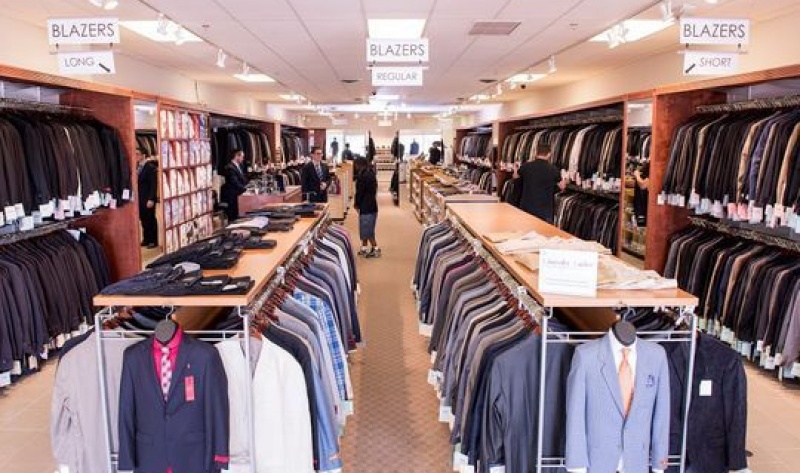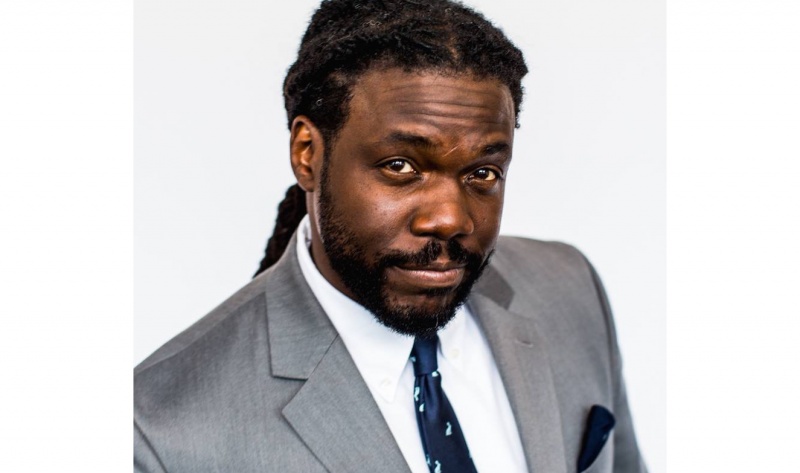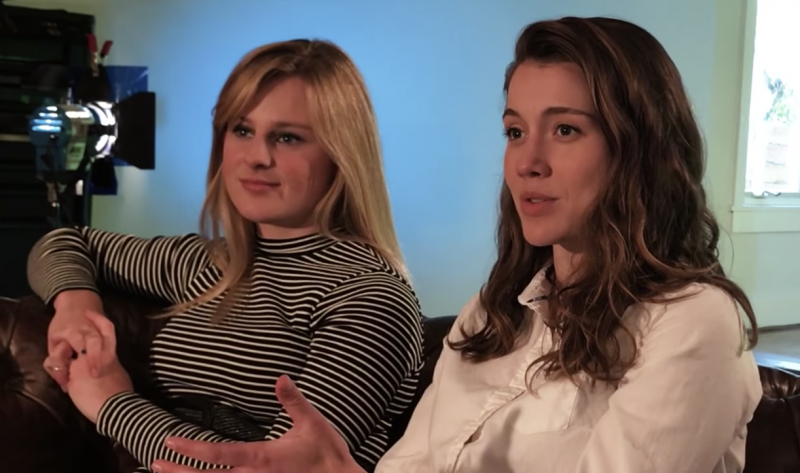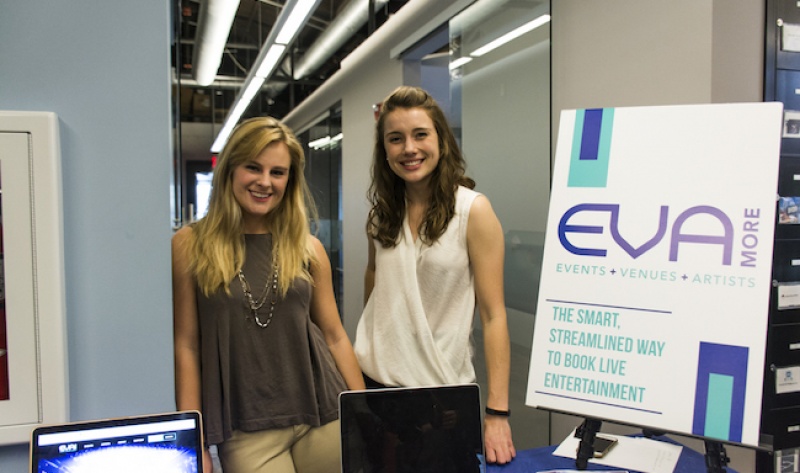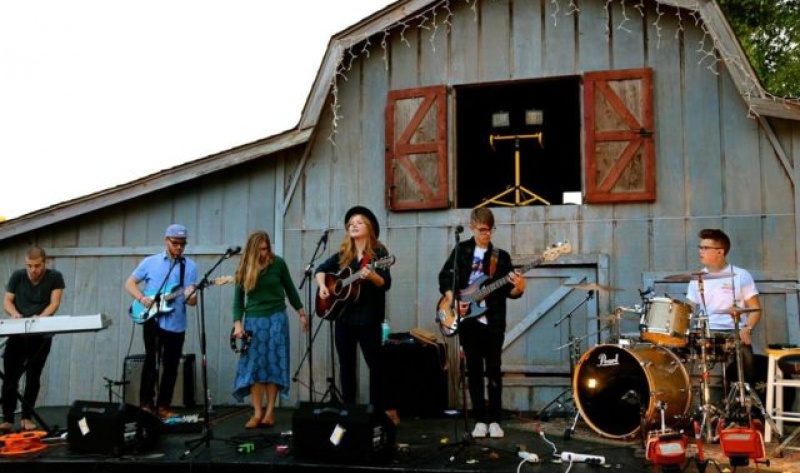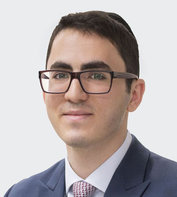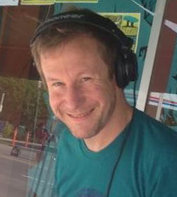Episode Transcript
CHRIS HENRY: There’s a zillion variations of house music. You know, there’s deep
CHRIS HENRY: There’s a zillion variations of house music. You know, there’s deep
house and hard house and tech house...
JOHN HENRY: In a remote part of the northern Rockies, in a town nestled between two national forests in western Montana, there’s a guy who knows everything there is to know about techno.
CHRIS HENRY: ...and then there’s all the drum and bass variants like techstep and liquid and neurofunk and breakcore and drill and bass.
JOHN HENRY: His name is Chris Henry, and he owns Ear Candy Music, a record store based in Missoula, Montana. Ear Candy specializes in brand-new vinyl records, the kind DJs use. Chris started selling records nearly 20 years ago, a few years after he first moved to Missoula. But what originally got him to move there was an accident. Back in 1993, Chris was directionless. He was trying to decide what to study in college and where. One day, Chris was making small talk with his friend’s mom at her kitchen table.
CHRIS HENRY: I said, I don’t know, maybe I'll do a creative writing degree and at the time
Missoula had the number one undergraduate creative writing program in the U.S.
JOHN HENRY: Wow.
CHRIS HENRY: And she’s like, “Oh my god, you gotta go to Missoula! They’ve got a great program. My brother's a lawyer there.” And I said, “how do you know about Missoula?” And she was like, “Honey, I'm from there!”
JOHN HENRY: That conversation stuck with Chris. He eventually made his way to Missoula to get that creative writing degree. That’s where he found his people: a mix of ranchers, artists, backpackers, and environmentalists. Chris says it’s a whole community of folks who don’t care about pretense or status. He loves it there. So, after graduation, Chris decided to stay in Missoula and, much to his own surprise, he found himself running a business there.
CHRIS HENRY: In classic Missoula style, it wasn't about starting a business. It was about staying in Missoula.
JOHN HENRY: I’m John Henry and this is Open For Business, a branded podcast from eBay and Gimlet Creative about building a business from the ground up. There’s been a lot of talk in the past year about how economic opportunities in some parts of the country are disappearing. Last year, a pro-business think tank called the Economic Innovation Group released a study. They found that between 2010 and 2014 just five cities accounted for HALF of net new business growth. Those cities were L.A., New York, Miami, Houston and Dallas. That means that if you look at all the businesses people started during that time -- and then subtract all the businesses that closed -- half of that leftover number came from just those five major metro areas. In this episode, we want to talk about businesses outside those places -- the other 50 percent. What can we learn from entrepreneurs in smaller cities and towns around the country? So today on the show, we’re bringing you stories and lessons about how to make the most of wherever you are. For many people looking to start a business, uprooting their whole lives to move to New York or LA isn’t an option. And, they may not want to. Running a business in a smaller community means the real estate is cheaper, the cost of labor is lower, and there’s less competition. Plus, if you start a business online, you don’t need to physically be where your customers are. Say you happen to fall in love with Missoula, Montana -- like Chris. You can just go into business with your raver friends. After college, Chris moved into a house with a bunch of friends, who were also really into Montana’s music scene.
CHRIS HENRY: They were in bands and you know we had all thrown raves together and stuff like that, so it was a group of people I was doing creative stuff with.
JOHN HENRY: One random day, a record store opened across the street from their house.
MUSIC CUE - How I Feel
CHRIS: So me and my friends were like, “Oh hey new record store!” and went over and
checked it out. It was a guy, broke away from a local record store. He was definitely more of a rock guy. So we just kind of got to talking with him and he said hey I really need someone to do hip hop and electronic like deejay vinyl. Are you guys interested and me and my friend kind of looked at each other and and kind of shrugged our shoulders and figured what the hell let's give it a shot. Sounds like fun.
JOHN HENRY: Let’s give a shot! Sounds like fun! So, Chris and a friend walked into this
random guy’s record store. And that’s how they started their business! Which is a really weird way to start a business. But, hey that’s Missoula!
CHRIS HENRY: Somehow it’s kept on going. I mean that was, yikes, almost 20 years ago.
JOHN HENRY: Today, Chris and the original owner still share the same brick and mortar record store, but they each sell their own inventory and they keep their profits separate. Chris alone does about 400 thousand dollars in revenue a year, and he told us that 70-percent of that happens on eBay. Doing this kind of business -- selling little known records and getting to do it from a place he loves -- none of that would have been possible for Chris without the internet, and e-commerce. Ever since Chris got on eBay in 2005, he noticed that people all over the world love getting their neuro funk and breakcore vinyl from a record store in the middle of nowhere in Montana. It’s become part of Chris’s marketing strategy. He calls it the “Montana angle.”
CHRIS HENRY: Doing this sort of high-end, sub-genre sort of niche culture stuff that I do, we definitely push the Montana angle, just because it's that much more surprising and unique and that much more likely to stick in someone's head. I've watched other sellers over the years and there's some that just put like U.SA, you know? Whereas me, I put Missoula, Montana and people will be like I can't believe I found this record at a record store in Montana. Like, where are you guys at? Montana?! What!
JOHN HENRY: So it sounds like you then have been kind of intentionally thinking about how to incorporate where you are into your brand to help you sell online. CHRIS HENRY: Well yeah and it's always you know it's the thing with competition it's either it's differentiation or competing on price. And if you're running a small business in the middle of nowhere, you're not going to compete with price. JOHN HENRY: Of course. Right.
CHRIS HENRY: So instead you've got differentiation.
JOHN HENRY: That brings us to lesson number one: make your location a part of your brand. It helps your company stand out from the competition. And it can resonate with potential customers -- especially online, where buying and selling can sometimes feel anonymous and impersonal. After decades of selling both online and off, Chris knows just how powerful lesson number one can be. He even sends custom-made, Ear Candy Music postcards to his customers to remind them where their records come from. It makes people feel like they’ve discovered something unique and special. Because who doesn’t want to say they got their niche techno music from a record store tucked away in the mountains of Montana? Roughly 2,000 miles away, in a middle-class suburb of Detroit called Oak Park, Marty Babayov runs The Suit Depot, a menswear store that specializes in, you guessed it, suits. Marty’s only 25, but he’s already been in business for several years. He started the company back when he was still a teenager, living at home with his parents.
MARTY BABAYOV: So my first storefront was actually located in my bedroom. Believe it or not.
JOHN HENRY: Wow, like, literally people were walking in there?
MARTY BABAYOV: Yeah. People were just walking in there. Luckily, it has its own side door over there. So they didn't get to trek through the house. Because it's a small
community if you lived in New York City and you put up signs “Hey, I've got suits. Come on see me in my bedroom and try ‘em on.” Someone would probably call the cops on
you.
JOHN HENRY: Right, right. [LAUGHS]
MARTY BABAYOV: You know here luckily I guys looked at it. Some of them knew me, some didn't. I mean you know word travels and people were coming in and shopping.
JOHN HENRY: Word travels especially fast in Marty’s neighborhood. He’s an Orthodox Jew, and so are nearly all of his neighbors.
MARTY BABAYOV: Orthodox Jews are Sabbath-observant and they don't use electricity or cars or any of that on Sabbath, so therefore they all have to be within walking distance of a synagogue. So the community is all located within probably two square miles. There's about 1,500 families within those two square miles and the street I'm on is you know 95% Orthodox Jews. It's got an element basically a large family, I guess. At times it feels like it can be a little bit nosy, everybody sort of knows what's going on in your personal life.
JOHN: Right, right. [LAUGHS]
MARTY BABAYOV: But there is you know there's upsides and downsides.
JOHN HENRY: What are some of those upsides and downsides?
MARTY BABAYOV: Well the upsides is the tighter knit the community is more you can spread the word when you're trying to get into business you're trying to sell product you can just print a couple of papers, put in a couple of the local stores and the whole Jewish community will know within 24 hours. On the downside, anything you do the whole Jewish community is gonna know within 24 hours. [LAUGHS]
JOHN HENRY: Marty is not exaggerating. When he bought a house last year, his mom heard about it from her friends before Marty had a chance to tell her the news. This word-of-mouth came in handy when Marty first started his business. Marty was seventeen years old and he had already been selling on eBay for years when he realized he wanted to focus on suits.
JOHN HENRY: So, what got you into suits specifically?
MARTY BABAYOV: Oh I didn't wear the suits for the first few years. I actually wore really baggy cargo pants and oversized button ups.
JOHN HENRY: That’s funny.
MARTY BABAYOV: But it really attracted me about suits I guess was it's a niche. I'm looking for something that I could dominate the market in. I'm looking for an area where I can find all the weaknesses and address them. T-shirts is too broad. Everybody wears them. Everybody sells them. I'm looking for a much smaller market.
JOHN HENRY: At this point, Marty knew more about baggy cargo shorts than how to sell suits. He still had a lot to learn before he could even think about dominating the market.
MARTY BABAYOV: I didn't have the majority of what people needed. I didn't have the styles they needed. It was just very, very limited. I thought I could open a suit store with less than 100 suits. [LAUGHS] There's 30 suit sizes so that tells you there you know how much that is.
JOHN HENRY: You can’t open a suit store with 100 suits, but you can start selling them online. So, Marty grew The Suit Depot on eBay while he tried breaking into traditional, brick-and-mortar retail. And, even though some of Marty’s early efforts at being a business owner were more successful than others, his customers kept coming back.
MARTY BABAYOV: When you jump into something new that you don't know, and you're
going to have to learn through trial and error. And now if you’re gonna jump in and open a business and make those mistakes it’s very hard to get rid of that image, oh you know they’re sloppy business on the other hand when you're in a community, they're very
forgiving. So if we don't have what they're looking for oh no problem. Just give me a call and you do get to you know. When you're dealing on a local level people like to deal with somebody they feel like they know.
JOHN HENRY: This gets at our second lesson. In a smaller, more tight-knit community, you can use your network to experiment, get feedback, and use that feedback to iterate over time. Opening a business in that kind of environment -- with customers who may know you personally -- can mean that you have more time to land on the right business model for you. That’s how it worked out for Marty.
MARTY BABAYOV: Many customers are just walking in now and they're like, “Wow you
know things change like I thought you know I didn't realize you know how much the
model changed how much the work and everything changed,” and they're coming back
to give it a second chance and they're just totally blown away by the difference from what they first encountered and what they're seeing now.
JOHN HENRY: Marty’s customers are so loyal, some of them stop by the store just to hang out and catch up on what’s going on in the neighborhood. He even has customers who started out buying suits from him online, but now drive hours just to visit The Suit Depot in person. In just a few years, the Suit Depot went from Marty’s teenage bedroom to a successful online store with an 11,000 square foot storefront. The Suit Depot now does over $2 million in sales a year. Marty has bigger plans, too. He’s developing special software that will make managing The Suit Depot’s e-commerce even faster and easier. And he’s planning on expanding the store in the near future. Marty hasn’t told many people about his plans yet, but he figures everyone probably already knows anyway. Word travels fast in Oak Park. Coming up, two young entrepreneurs face their fears.
CHANNING MORELAND: I remember like my knees trembling, and I remember being really nervous that because I was wearing a dress you could see my knees shaking.
JOHN HENRY: After the break: pitching your music startup to the biggest names in Music City, U.S.A.
JOHN HENRY: Welcome back to the show. We’re talking about running a company outside of New York City, Los Angeles, and the other major U.S. hubs for entrepreneurship. How do you make the most of wherever your company is located? To find out, we talked with two young entrepreneurs in Nashville. Nashville. Music City, U.S.A. Located in the heart of Tennessee. Home to hot chicken, southern hospitality, and, of course, music. Nashville is also one of the places in the country where entrepreneurship is on the rise. A recent report from the Brookings Institution found that young companies in Nashville have had a sizable increase in hiring since about 2010. Specifically, between 2010 and 2015, the number of people employed by companies who’ve been around less than five years increased by 25%. That puts Nashville in the top five cities in the country for hiring among startups. It’s not quite a hub for new business yet, but it looks like it’s on its way. At least these two entrepreneurs sure hope so.
MAKENZIE STOKEL: My name is Makenzie Stokel, and I am the co-founder and Chief Operating Officer of EVAMore.
CHANNING MORELAND: My name is Channing Moreland. I am co-founder and Chief Executive Officer of EVAMore.
JOHN HENRY: EVAMore is actually Makenzie and Channing’s second company. And they
never would have landed on the idea for it, if they hadn’t embraced everything Nashville has to offer. Makenzie and Channing met in 2012 as freshmen at Belmont -- a college in Nashville’s Music Row neighborhood. They bonded over their love of organizing parties with live music and going to see concerts. But Makenzie and Channing kept missing their favorite musicians because they didn’t hear about shows until after they had already happened.
CHANNING MORELAND: And we were just kind of talking away at dinner, and I remember we were like, “Why is this so hard. Like, why are we always missing out. And there needs to be a better way to do this and you know maybe we should do it. Like, what if we just change the way that this happened?” and then we kind of looked at each other and we're like, OK let's do it.
JOHN HENRY: That’s how they came up with the idea for their first business. They wanted to make a social network that would tell people which musicians were in town, and when, and then connect them to other people with similar taste in music, so they could all go to the show together. Makenzie and Channing had the concept, but they needed a name. So they picked one. A name they now regret.
CHANNING MORELAND: Oh my gosh. [LAUGHS]
MAKENZIE STOKEL: So Nashville is kind of a music hub and we wanted to show people
what's happenin’. So we kind of just made a word. And what’s hubbin was born.
JOHN HENRY: Their next step was entering What’s Hubbin into a business competition at their school. In the final round, contestants would pitch a panel of local entrepreneurs with their big idea. The grand prize was $5,000 dollars. Makenzie and Channing made it to the last round. They practiced their pitch for weeks. But still, standing there in front of the judges was nerve-wracking.
CHANNING MORELAND: Looking back I remember like my knees trembling and I remember being really nervous that because I was wearing a dress you could see my knees shaking. And it's one thing you know to just be pitching about something that you believe in. But another thing to have judges there who are highly regarded in the town and have been asked to come in and watch you and ask questions and judge you, so that
was definitely horrifying. [LAUGHS]
JOHN HENRY: It might have been horrifying for them, but the judges loved it. Channing and Makenzie’s pitch won the grand prize.
What’s Hubbin’ was $5,000 dollars closer to being a real company. But Channing says that getting the check wasn’t nearly as important as what happened afterward.
CHANNING MORELAND: What was really I think pivotal for us were the judges came up to us afterwards and I remember one of them and he, you know, he not only asked great questions but he was just like you guys were really on to something. And he was also the one who recommended us for Project Music and that started at that business plan competition.
JOHN HENRY: Project Music was the first music-focused tech accelerator in the US. It’s a full-time, 14-week program and startups from all over the country compete to get in. If your company is accepted into Project Music, you receive $30,000 in seed money, right on the spot. And, every start-up gets a designated team of 5 or 6 mentors -- each of whom bring the expertise they’ve developed through decades in the music business. In 2014, Project Music was brand new. Channing was back at home in Boston over winter break, when she got the call about their application.
CHANNING MORELAND: I was standing in my kitchen with my dad and I saw that the director of Project Music was calling me and I like freaked out and ran into the other room, but I was secretly really scared that they were saying we weren't getting in. And I answered the phone and he congratulated us and asked if we would accept a position with the inaugural class of Project Music but I was so pumped but I said I needed to talk with McKenzie first. So I got off the phone with him called her and that was awesome. I think we were like screaming jumping up and down just really excited because we had to fight through a lot of other applications to get there but we definitely felt like badasses for getting in.
JOHN HENRY: What’s Hubbin’ got in! But the first thing Makenzie and Channing learned was that What’s Hubbin’ wasn’t going to make it out.
CHANNING MORELAND: When we were talking to the Director of Project Music, he was
like, “I think what you guys have done is incredible but you should really think about you know scalability and what is a great business model.” And we knew. I mean, we had been hearing some hard questions when pitching What's Hubbin’ and we knew that it was hard
to try and make money off of that concept. And on day two, we changed our business. We're like yep we are openly saying we are pivoting on day two of Project Music and we're going to figure this out.
JOHN HENRY: That’s when they pivoted to their second business, the one they run today:
EVAMore. Channing and Makenzie realized their first idea was too broad. They pivoted away from the social network for anyone who loves music and decided to focus on people who needed to book musicians for events like college parties, corporate retreats or weddings. At the end of the 14-weeks, Makenzie and Channing pitched EVAMore in front of hundreds of people.
ANNOUNCER: At the place where event producers, emerging artists, and the music industry intersect, there is a company whose purpose speaks directly to the need of each
industry category. They’re called EVAMore. And lease welcome the founders of
EVAMore, Channing Moreland and Makenzie Stokel...
JOHN HENRY: This time around, there were no shaky knees in sight.
PITCH TAPE: We’re automating the process of booking live music. A further way to look
at this is that way Expedia is for the travel industry. EVAMore is that for the music industry.
JOHN HENRY: In the two years since that pitch, EVAMore’s valuation has more than tripled, and they’re thinking about doing a round of series A financing either later this year or early next.
Something like 25 colleges now use the platform and EVAMore has established partnerships with major booking agencies throughout the country. According to Channing and Makenzie, one reason for their success is the fact that they’re based in Nashville. They launched a music start-up in a town deeply rooted in the music business. This may sound counterintuitive at first, but instead of being crushed by the competition, Channing and Makenzie found Nashville’s music industry was one of their biggest assets. It gave them access to up-and-coming musicians, an existing customer base of music fans, and institutional support, like Project Music. Channing and Makenzie used Nashville’s music industry as a springboard. And this gets at lesson number three: play to your community’s strengths. Every city or town has them. Look around you. Ask yourself, what makes this place different? And, how I can use that to my advantage? In Nashville, the music industry is one of those strengths, but so is health care. In fact, at $40 a year -- healthcare is Nashville’s single biggest industry.
MARCUS WHITNEY: If you take the same amount of capital and quite frankly the same amount of talent in the founder and the team and they are doing a healthcare business versus doing some other type of business let's say a social network. The healthcare business in Nashville is going to have a significantly better chance of being successful
JOHN HENRY: This is Marcus Whitney, an entrepreneur and investor in Nashville. It’s his job to find the companies that are going to be successful in the healthcare space and invest in them.
MARCUS WHITNEY: They have the additional benefit of the very, very strong cluster of healthcare companies that's here and that cluster provides mentorship provides guidance on product market fit and also can be customers.
JOHN HENRY: Marcus is a big believer in lesson number three. He co-founded a venture capital fund called JumpStart Foundry. They invest solely in healthcare startups, because they’ve found that, in Nashville, healthcare start-ups perform much better than other types of start-ups. But he says that there’s another, lesser known strength in Nashville. Something that’s key to the success of young entrepreneurs there, and something that almost everyone we talked to told to us about Nashville.
MARCUS WHITNEY: There's sort of a golden rule that if someone asks you to have a cup of coffee you kind of can't say no.
JOHN HENRY: This is one of Nashville’s hidden strengths. There’s music, there’s health care, those are quantifiable. They’re known. But there’s also something you can’t measure. A sincere belief in the power of mentorship. Makenzie says that was definitely true for EVAMore.
MAKENZIE STOKEL: Nashville is such a community-based town that people want to help
each other out.
JOHN HENRY: Every step of the way, mentors have guided Channing and Makenzie as they’ve built EVAMore. From the judge at their very first pitch competition who encouraged them to apply for Project Music and the advice that they got there to the many big shot music promoters and agents who’ve taken time to meet with them.
MAKENZIE STOKEL: You really can reach out to people at kind of top level jobs and they're more than likely willing to sit down and talk about their story and their journey and where they got started and help you kind of connect the dots on some of your
thoughts and goals.
JOHN HENRY: EVAMore has only been around for two years, but Channing and Makenzie already feel that desire to give back and help other entrepreneurs get started.
CHANNING MORELAND: We're young and still new to this, but we're already even feeling how important it is to give back and to advise younger student entrepreneurs, so I think that there is something special about that cycle of the community importance in Nashville.
JOHN HENRY: And this is the real heart of lesson number three. In order to play to your
community’s strengths, you have to know what they are. They might not be obvious at first. They might not even be measurable. But they’re there. And when you find them, use them to your advantage. Channing and Makenzie aren’t in New York, or LA, or any of the other places we listed at the top of the show. They’re two young entrepreneurs building a company in a city they love. And they plan on staying there for years to come. So, to recap today’s lessons on how to make the most of wherever your business is located. Lesson number one: Make your location part of your brand. Don’t be generic. Be authentic about where you live and work and how it sets you apart from other businesses. Customers will appreciate it. Lesson number two: In a smaller, more tight-knit community, it’s more possible to experiment, test out your ideas and iterate based on the results you’re seeing. If your customers know you personally, they’re more likely to keep coming back as your business grows and evolves. And finally lesson number three: Play to your community’s strengths. Sometimes they’re obvious, and sometimes they’re not. Keep looking. When you find them, use those strengths to your advantage. That’s our show! To learn more, check out ebay dot com slash open for business. You can also find the studies and research we referred to in the show notes on the Gimlet Creative website. Open for Business is a co-production of eBay and Gimlet Creative. We were produced this week by Frances Harlow, RMW, Nicole Wong, Katelyn Bogucki, Abbie Ruzicka, and Grant Irving with creative direction from Nazanin Rafsanjani. We were mixed this week by Zac Schmidt. Our theme song is by Vulfpeck. Thanks so much to Christine Driscoll. And thank you to Eric Fishman, David Latimer, and Heather McBee. A very special thank you Jim Grau. We couldn’t have done this episode without you. And thank you to Clark Buckner at the Entrepreneur Center, who was instrumental in getting this episode off the ground. Thanks as well to Alan Berube and Chad Shearer of the Brookings Institution, Amanda Bird from the Economic Innovation Group, and Alan Elias, of eBay’s own Public Policy Lab. Next week on Open for Business: how to find your company’s mission. How would you answer the question, “what drives your company, beyond making a profit”? It’s not as easy as it sounds.
STEPHANIE SHORE: It’s always been a challenge to really get those values off a postcard and into the day-to-day. So that to me was interesting, just coming in to MOO and saying, OK, this is a company that feels like it really lives and breathes its culture. But have we actually gotten the values off the poster?
JOHN HENRY: That’s coming up next week on Open for Business! If you like what you hear, please subscribe to Open For Business on iTunes or wherever you get your podcasts and leave us a review! It helps people discover our show. I’m John Henry. Thanks for listening.
Read Entire Transcript


